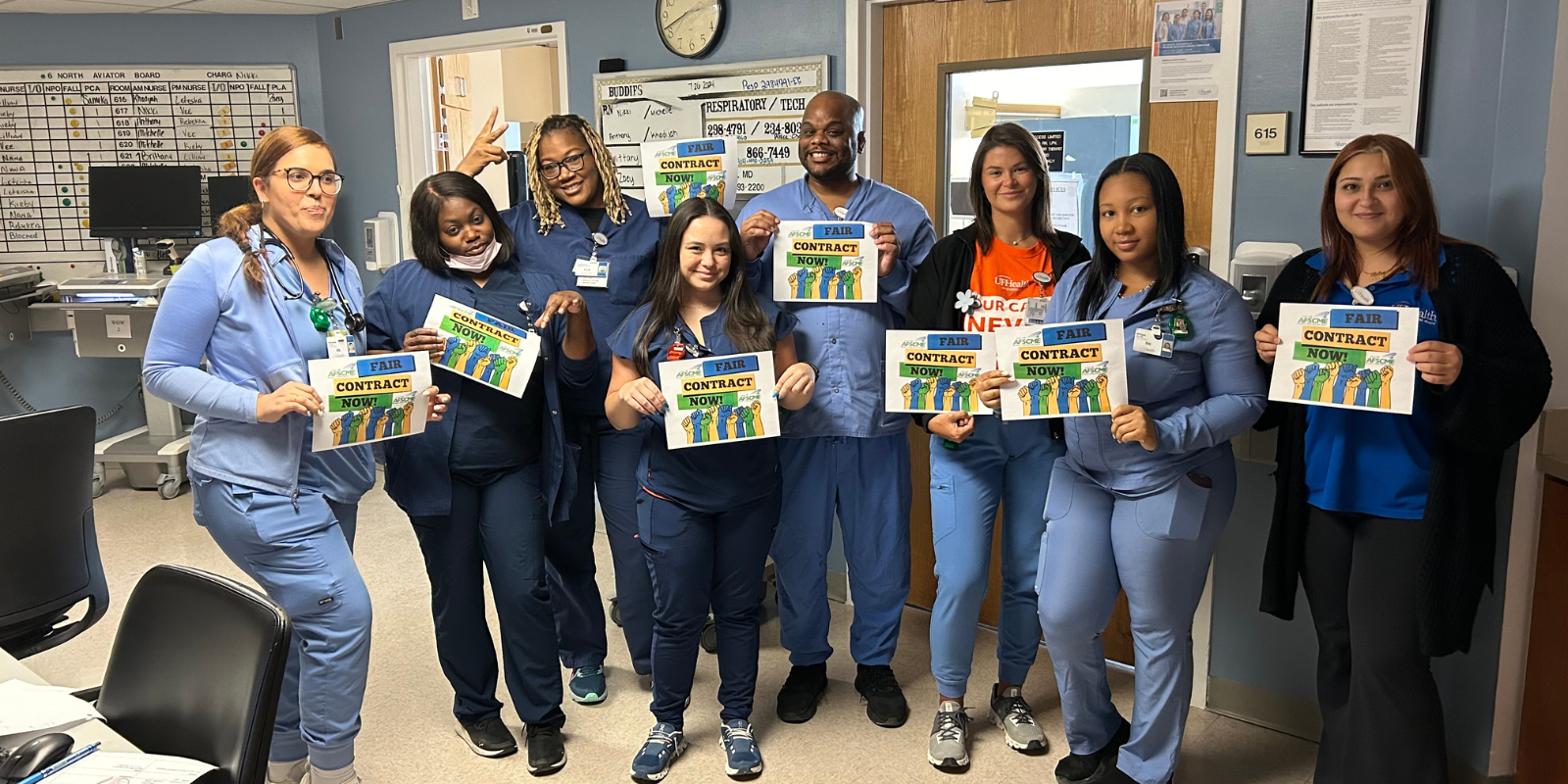JACKSONVILLE, Fla. – The staff of North Florida’s fast-growing University of Florida (UF) Health system recently voted 99% in favor of a contract that will protect their health coverage, improve their ability to use their time-off benefits, and much more.
“With this contract we made real progress with specific roles and duties that need extra focus to both reflect the hard work that is being done and fill the staffing needs that we have,” said Mary Blocker-Williams, a patient care associate and president of Local 1328 (AFSCME Florida).
Blocker-Williams credited increased member involvement for securing the contract.
“This is a direct result of the members getting more active,” she said. “Now, for example, when you help train a new employee, you are getting additional pay for taking the training class and for the time you spend working with them. So the members are going to see that their activism is paying off in their pocketbook.”
The new three-year contract includes no changes to current insurance premiums, a stronger grievance process, and eliminates black-out periods that limited when employees could take leave time. It also includes a $2-an-hour increase for charge nurses, up to 4% merit increases once the City of Jacksonville’s budget is approved, and a $1-an-hour minimum extra pay for employees filling precept roles.
Finally, management must now respond within 15 days of receiving a request for meetings and provide written details within 15 days of any new policy change.
Both locals 1328 and 1781 — which represent Jacksonville-area workers at UF Health — have experienced growth and upped their membership engagement.
With the raft of anti-union legislation that has been passed in the state recently, workers at UF Health Jacksonville understood that the contract they approved 503-2 is what anti-worker forces want to take away. And with this new contract, members are realizing that the growth and activism on the job produces real results. In fact, during the two days of contract ratification, 45 new members joined AFSCME.
“People are becoming more aware of how things in the hospital are impacting them and the fact that they can actually have a say through their union,” said Ramon Williams, a respiratory therapist and president of AFSCME Local 1781.
“The contract is really seen as a stepping stone towards the next one. We have held the line on our health insurance, we’ve made some investments in pay,” Williams added. “Now let’s take this momentum and keep building so we can focus on workplace safety, across-the-board pay raises and all the other issues we can tackle when more of us are involved.”
